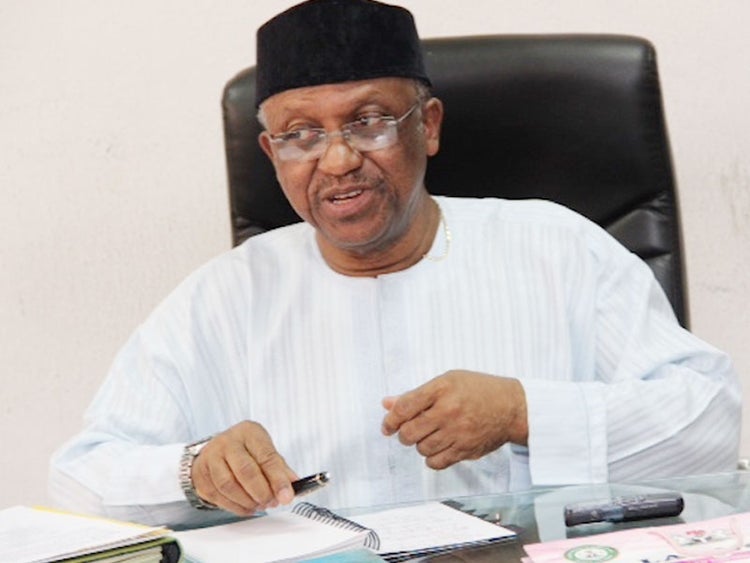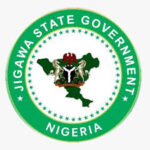“A Bill for an Act to Amend the Medical and Dental Practitioners Act, Cap. M379, Laws of the Federation of Nigeria, 2004 to mandate any Nigeria-trained Medical or Dental Practitioner to Practice in Nigeria for a Minimum of Five (5) years before being granted a full licence by the council in order to make Quality Health Services available to Nigeria; and for Related Matters (HB.2130)” passed second reading at the House of Representatives on April 6, 2023.
Aimed at curtailing Nigerian-trained medical and dental practitioners’ exit to foreign countries, the sponsor of the bill, Ganiyu Abiodun Johnson, argued that it is fair for medical practitioners who had benefited from taxpayer subsidies to undergo mandatory service for a minimum number of years in Nigeria before taking their skills abroad.
The Minister of Health, Dr Osagie Ehanire, agrees, saying, “because if the government allows you to get training for about one-tenth or one-twentieth of the cost of the private university, then it means it is subsidised. Therefore, I’m sure Ganiyu was thinking about those in that category who should also give back to the country, having received a classy education that is respected outside. This is because even the cost of training here is very small compared to school fees paid in foreign countries to become a doctor. I think this is the angle the representative was looking at the issue from.”
The majority of lawmakers supported the bill, although some called for flexibility and options in the proposed law. However, Hon. Uzoma Nkem-Abonta opposed it, stating that it is enslavement to tie a doctor down for five years in Nigeria, post-graduation before seeking employment overseas. The Nigerian Medical Students Association (NiMSA) concurs, tagging the bill as unpatriotic, ill-timed, and a breach of the fundamental human right of doctors as enshrined in the 1999 Constitution of Nigeria as amended and accusing the House of aiming to strangulate the medical profession.
Death toll hits 151 as Lassa fever spreads to 26 states
Mob kills tricycle rider who stabs passenger to death in Bayelsa over N50
But the issue of brain drain is real and poses a danger to Nigeria’s healthcare system. A 2022 UK Immigration report showed that 13,609 Nigerian healthcare workers (including doctors) were granted working visas in 2021, making the country second only to the 42,966 from India.
Other popular destinations for Nigeria-trained doctors include US, Canada, Qatar, Saudi Arabia and Australia. The picture is grim as statistics of Nigerian health workers ratio to the population show there are 15.64 nurses and midwives to 10,000 people; 3.95 medical doctors to 10,000 people; 0.20 dentists to 10,000 people; and 0.81 pharmacists to 10,000 people. These figures are worse in rural areas or areas facing security challenges.
To compound matters, a 2023 health workforce support and safeguards list report released by the WHO showed that Nigeria and 36 other African countries face the most pressing health workforce challenges related to Universal Health Coverage.
From the foregoing, there is no doubt that Nigeria is in need of more health practitioners and is currently not in a position to be exporting them, particularly after doctors have been trained on government subsidies.
The UK is a popular destination for Nigeria’s doctors seeking greener pastures. But it will cost, on average, medical student or their parent about N60 million for a full medical education in Britain. This is why many medical students there are already neck-deep in debt by the time they are leaving medical school.
In Nigeria, it will cost a medical student less than 10% of that because federal and state governments pay for tuition in Nigerian public universities. Daily Trust, therefore, commends this initiative which seeks to make subsidized tertiary education work to the benefit of Nigerians at large.
However, it is important that Nigeria deals with the fundamental cause of the brain drain in the sector. There must be concerted efforts to resolve the challenges of poor care delivery framework, failure to invest in the health care, fostering a conducive environment and engendering a system that promotes professionalism, growth, work satisfaction and high-reliability culture.
Nigeria should also address the emolument factor. On average, newly trained doctor [abroad] earns about £40,000 (about N22m at the official exchange rate) per annum while locally, the same category earns about N3 million to N3.6 million per annum, which is simply unacceptable. If doctors—and other professionals—earn good salaries here at home, many will remain here to contribute to the growth of their country, rather than jet out in search of better opportunities in foreign lands.
Furthermore, the bill should provide exceptions, either in the form of waivers or reduced years of restriction, for doctors trained at private universities in Nigeria where parents pay full tuition fees. Private universities do not enjoy any subsidies from federal or state governments. To lump them together is unfair. Moreover, the National Assembly should work with all stakeholders such as professional and trade associations in the medical field, medical students, academic experts, civil society organizations and especially employers in order that the resulting legislation will benefit from inputs from all those involved.
Tackling brain drain is no easy task. But this could be a good start.

 Join Daily Trust WhatsApp Community For Quick Access To News and Happenings Around You.
Join Daily Trust WhatsApp Community For Quick Access To News and Happenings Around You.


